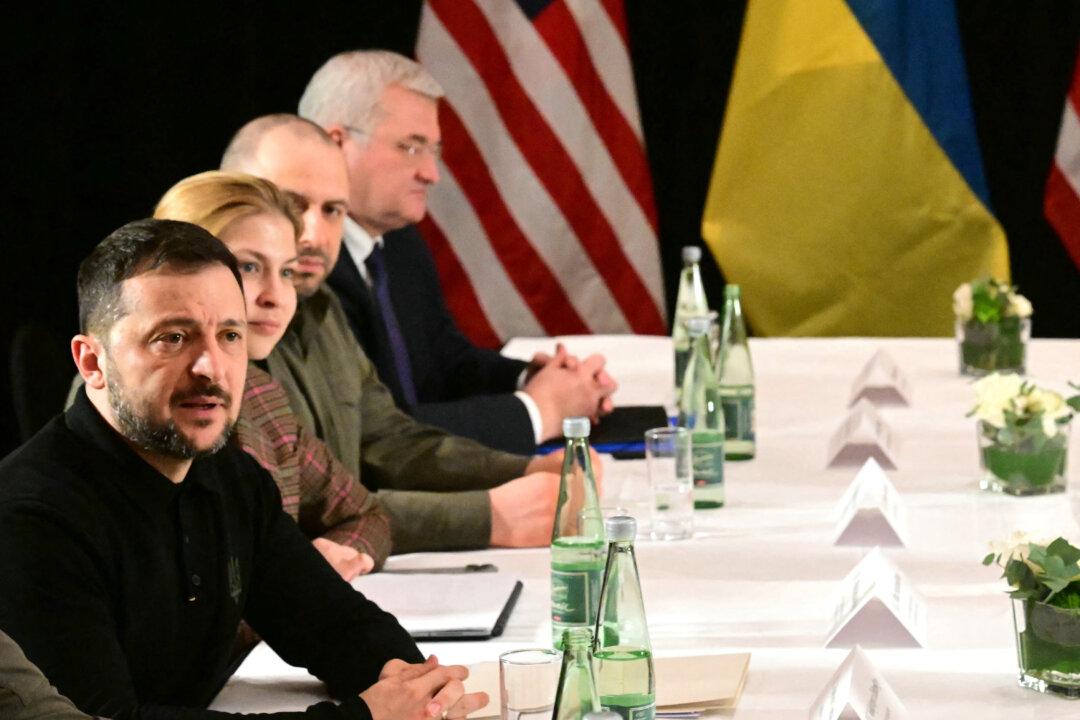Ukrainian President Volodymyr Zelenskyy is holding out for firmer security guarantees from the United States before he’s ready to accept a deal to provide the United States with access to his country’s rare earth minerals and other natural resources.
Zelenskyy and U.S. President Donald Trump have begun discussions on a deal that could see the United States continue to provide aid to Ukraine in exchange for access to the country’s natural resources. Last week, Trump said the United States stands to gain up to $500 billion worth of Ukrainian natural resources as part of the deal.





